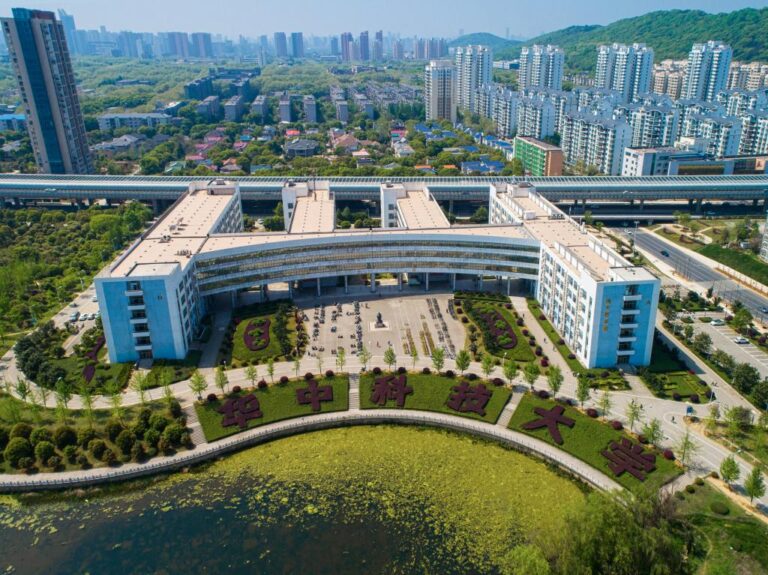DAAD Helmut-Schmidt-Programme (Master’s Scholarships for Public Policy and Good Governance – PPGG)

Introduction
The DAAD Helmut-Schmidt-Programme, also known as the Master’s Scholarships for Public Policy and Good Governance (PPGG), is a prestigious scholarship offered by the German Academic Exchange Service (DAAD). This program is designed for highly qualified graduates from developing and emerging countries who aspire to contribute to social, economic, and political development in their home countries. The scholarship provides an opportunity to pursue a master’s degree in disciplines related to public policy, governance, and leadership at selected German universities.
Named after former German Chancellor Helmut Schmidt, a strong advocate for democracy and good governance, the program equips future leaders with the necessary skills to promote sustainable development, strengthen democratic structures, and implement effective policies in their countries.
Scholarship Provider
The DAAD (Deutscher Akademischer Austauschdienst) is the largest German organization supporting international academic exchange. It offers scholarships, funding opportunities, and academic cooperation programs worldwide. The Helmut-Schmidt-Programme is one of DAAD’s flagship initiatives aimed at fostering leadership and good governance in developing nations.
Eligibility Criteria
To qualify for the DAAD Helmut-Schmidt-Programme, applicants must meet the following requirements:
- Nationality: Citizens of eligible developing and emerging countries (as listed by DAAD).
- Academic Background: Applicants must hold a bachelor’s degree (at least second class upper or equivalent) in a relevant field such as Political Science, Public Administration, Economics, Law, Social Sciences, or Development Studies.
- Professional Experience (Preferred): While work experience is not mandatory, applicants with practical experience in public service, governance, civil society organizations, or policy-related fields are given preference.
- Language Requirements:
- English-taught programs require proof of proficiency (IELTS, TOEFL, or equivalent).
- German-taught programs require a B2 level in German.
- Commitment to Public Service: Applicants should demonstrate a strong commitment to social change, governance, and development in their home countries.
Fields of Study
The scholarship is available for selected master’s programs in:
- Public Policy
- Public Administration
- Governance and Development
- International Affairs
- Law and Public Management
- Political Science
- Social Protection
These programs are hosted by selected German universities known for excellence in public policy education.
Scholarship Benefits
The DAAD Helmut-Schmidt-Programme provides comprehensive financial and academic support, including:
- Full tuition coverage for the entire master’s program.
- Monthly stipend of €934 to cover living expenses.
- Health insurance throughout the scholarship period.
- Travel allowance for international flights to and from Germany.
- Study and research grant to support academic work.
- German language course (6 months) before starting the master’s program.
- Networking and internship opportunities in government institutions, international organizations, or NGOs.
Number of Awards
Each year, the DAAD selects a limited number of highly qualified candidates based on merit and leadership potential.
Application Process
- Choose a Master’s Program
- Review the list of eligible universities and programs under the Helmut-Schmidt-Programme.
- Prepare Required Documents
- Completed DAAD Application Form (available online).
- Motivation Letter explaining career goals, leadership potential, and how the program aligns with development in the applicant’s country.
- Academic Certificates & Transcripts (translated into English or German).
- Curriculum Vitae (CV) in Europass format.
- Proof of Language Proficiency (IELTS, TOEFL, or German language certification).
- Reference Letters from academic or professional referees.
- Work Experience Proof (if applicable).
- Submit the Application
- Applications must be sent directly to the chosen universities (not DAAD). Each university may have its own submission guidelines, so applicants should carefully check the specific requirements.
- Selection Process
- The universities shortlist candidates based on academic merit, leadership potential, and commitment to public service.
- DAAD finalizes the selection and notifies successful applicants.
- Pre-Departure and Language Training
- Selected students must complete a six-month intensive German language course before starting their master’s program.
Important Dates
- Application Period: Usually from June to July each year.
- Selection Process: Takes place between August and December.
- Notification of Results: Around January or February.
- German Language Course: Begins in April.
- Master’s Program Start: October of the same year.
Selection Criteria
The selection process is highly competitive and considers the following factors:
- Academic Excellence: Strong academic performance in a relevant field.
- Leadership Potential: Demonstrated commitment to social change and governance.
- Work and Volunteer Experience: Experience in policy-related fields, public administration, NGOs, or international organizations.
- Relevance to Development: Clear alignment between the chosen master’s program and the applicant’s plans to contribute to governance and policy reforms in their home country.
Contact Information
- Website: DAAD Scholarship Database
- Email: [email protected]
- Address: DAAD – German Academic Exchange Service, Kennedyallee 50, 53175 Bonn, Germany
Application Checklist
✅ Completed DAAD Application Form
✅ Motivation Letter
✅ Academic Certificates & Transcripts
✅ Curriculum Vitae (CV)
✅ Proof of Language Proficiency (English or German)
✅ Reference Letters
✅ Work Experience Proof (if applicable






